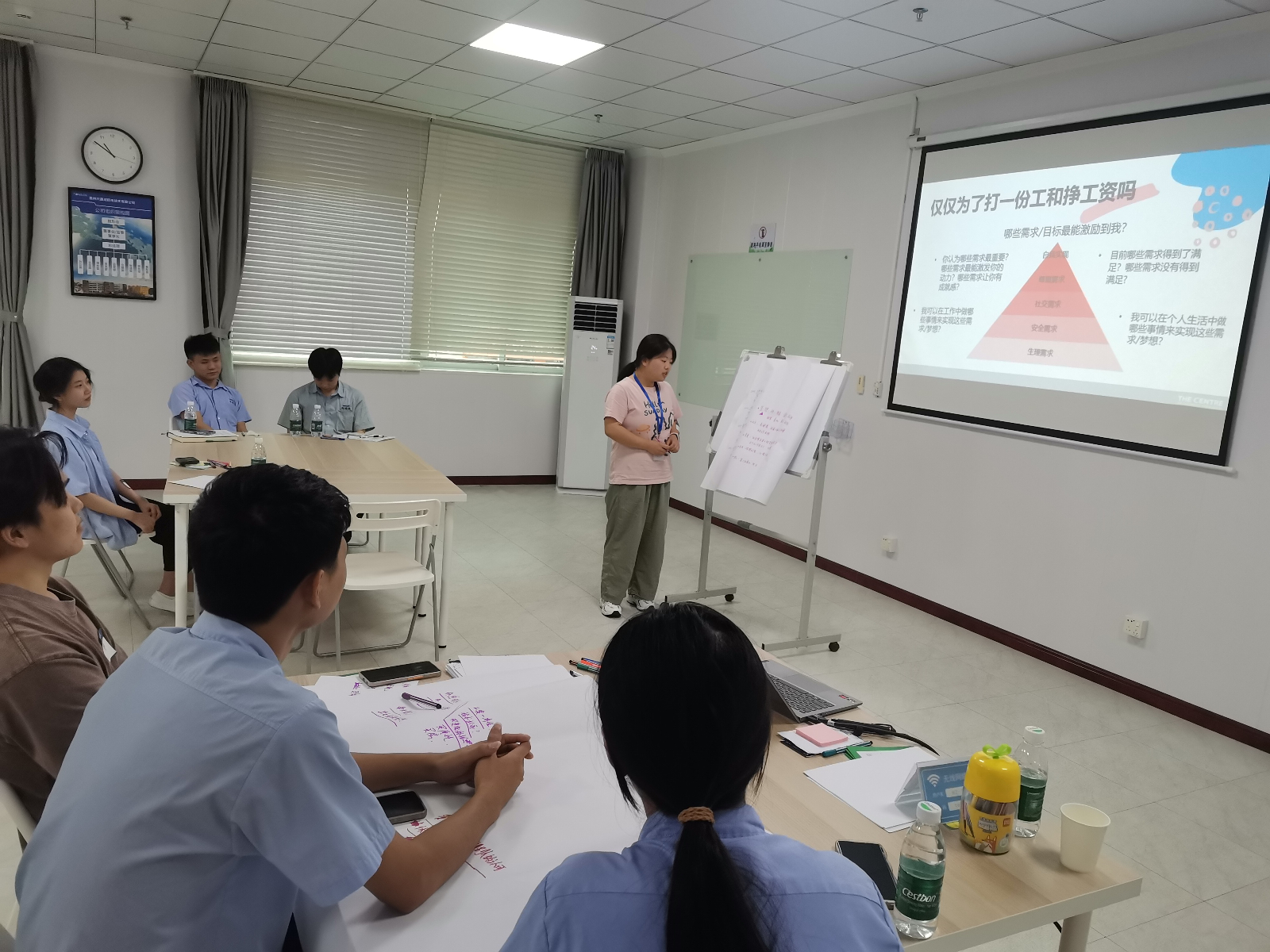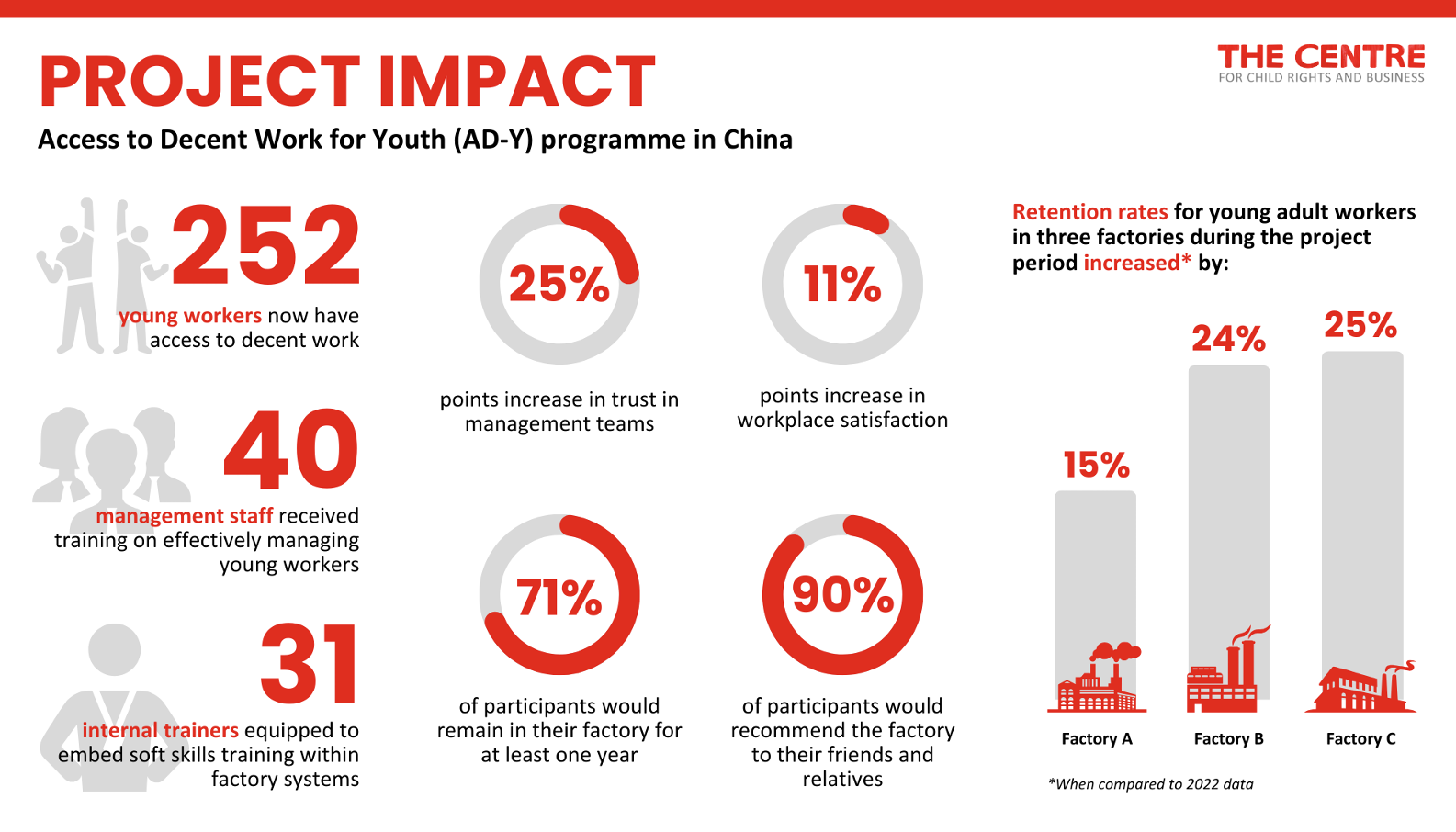

Youth worldwide are eager to work and gain skills, yet many face barriers to safe, age-appropriate jobs due to age-related hiring practices. For IKEA, this understanding has led to proactive investment in young adult workers through The Centre’s Access to Decent Work for Youth (AD-Y) programme. To date, IKEA has worked with The Centre in China, Vietnam and Indonesia to create decent work opportunities for local youth.
In China, the AD-Y programme focused on enhancing hiring practices and supporting young adult workers aged 18 – 24 years who are already employed across IKEA’s three supplier factories. As a result, 252 young adult workers are in age-appropriate, decent jobs, while 40 factory management staff received training on effectively managing these young adult workers.

Building Skills and Changing Systems
Rather than short-term or isolated improvements, the project targeted foundational changes to management approaches towards young adult workers, workplace culture, and recruitment practices, aiming for long-term transformation across the partner factories through rigorous capacity building.
The programme began by equipping management and young adult workers with the skills they need for success. For management, this meant training that reshaped how they viewed and managed young adult workers. Over 40 management staff members have been trained in managing young adult workers more effectively, with 31 taking on the role of internal trainers to embed soft skills training within factory systems.
Young adult workers themselves have received training covering essential areas:
Workers' rights and labour laws
Occupational safety and health
Effective workplace communication
Financial and digital literacy
Self-assessment and career development
Promoting healthy lifestyles
Gender-friendly workplaces
For many, these skills marked their first introduction to topics like career development and financial literacy, helping them not only on the job but in managing their lives outside of work.

“After attending the soft skills training, I am more aware of safety than before. For example, I keep a safe distance from forklift trucks and am more cautious in my current position. This awareness helps me stay safe and feel more confident."
–A female young adult worker at one of the participating factories

As the programme matured, the factories set up mentorship and buddy systems to ensure that young adult workers had role models and peers to guide them. 70 staff and young adult workers received training on this system. This support structure has helped young adult workers feel more connected to their workplace, fostered a sense of belonging and boosted job satisfaction. The programme has also facilitated factories’ adjustments to increase non-hazardous job opportunities, creating safer environments for young adult workers and allowing them to grow in roles where they can gain experience without risk.

“After implementing the mentor and buddy system in October, we noticed an increase in the retention rate among newly recruited workers despite a previously high turnover rate.”
–A management personnel from one of the participating factories

One of the components of the AD-Y programme is to encourage suppliers to hire new batches of young adult workers, particularly vulnerable or marginalised youth in need of age-appropriate, decent work. While the factory now knows how to recruit and manage young adult workers responsibly, no new young adult workers were onboarded as part of the programme, underscoring the challenge of attracting young talent to the manufacturing sector. However, with the systems now in place to offer youth decent work, the factory is committed to keeping its doors open for new young adult workers.
Positive Outcomes from the AD-Y Programme
25% points increase for trust in management teams
11% points increase in workplace satisfaction
71% of participants would remain in their factory for at least one year
90% of participants would recommend the factory to their friends and relatives
Retention rates for young adult workers in three factories during the project period increased by 25%, 24%, and 15%, respectively, compared to 2022
By using this website, you agree to our use of cookies. We use cookies to provide you with a great experience and to help our website run effectively.